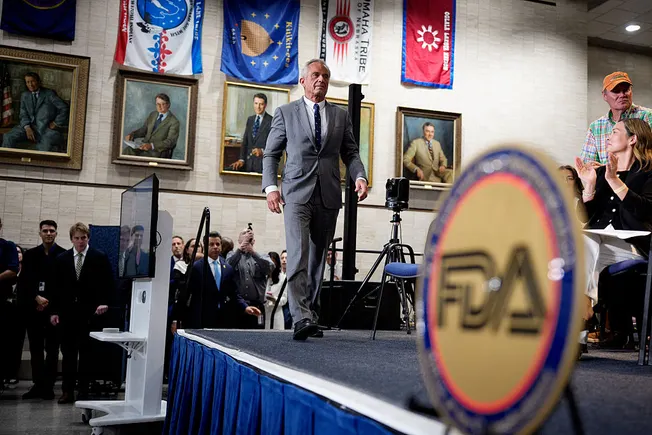Dive Brief:
- The FDA is collaborating to establish a consistent definition of ultra-processed foods, a significant focus of Health and Human Services Secretary Robert F. Kennedy Jr.’s initiative to “Make America Healthy Again.”
- In partnership with HHS and the USDA, the agency is seeking input from stakeholders to determine a nationally recognized definition of ultra-processed foods.
- The FDA noted the absence of a definitive definition for ultra-processed foods in the U.S. food supply, highlighting the potential impact on future regulations, including eligibility for school lunch programs and food assistance benefits.
Dive Insight:
Ultra-processed foods have been identified by Kennedy as a leading contributor to chronic illnesses in the U.S., with claims that they are adversely impacting Americans’ health, particularly in children.
According to the National Institutes of Health, ultra-processed foods like chips, sodas, and packaged bread account for more than half of the total dietary energy consumed in countries like the U.S. Studies have linked these foods to various health issues, including cardiovascular disease, Type 2 diabetes, and obesity.
Typically, ultra-processed foods are products manufactured through industrial processes or contain additives like artificial flavors and added sugars to enhance taste.
“The health risks associated with foods classified as ultra-processed are evident and compelling, underscoring the importance of collaborating with federal partners to establish a uniform definition of ultra-processed foods,” stated FDA Commissioner Marty Makary.
However, former FDA officials have highlighted that some foods categorized as ultra-processed may not necessarily lead to negative health outcomes. Foods such as whole grain bread, yogurt, tofu, and even infant formula fall under the ultra-processed category in certain definitions, despite being essential and nutritious.
Defining ultra-processed foods could advance nutritional research and have implications on policy-making. More studies are needed to assess the direct impact of processed foods on health outcomes, according to Nitin Nitin, vice chair of food science and technology at the University of California, Davis.
Further research is essential to comprehend how ingredient combinations and processing methods influence food properties and their effects on human health, Nitin noted in a Q&A session.

